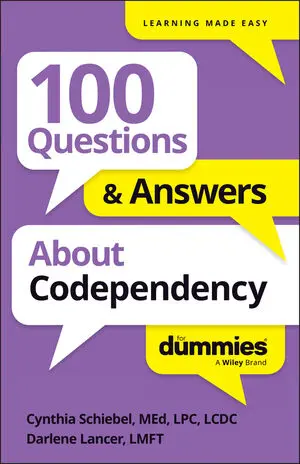Managing and controlling behaviors, which include caretaking and enabling, violate others’ boundaries. Managing someone’s life shows disrespect. It sends the message that the person is incompetent and needs your help. Underneath are your fear and expectations about that person’s life, as shown.
![[Credit: By Darlene Lancer]](https://cdn.prod.website-files.com/6634a8f8dd9b2a63c9e6be83/6698d0b9c6e59ba968ebeb6c_471696.image0.jpeg)
In reality, you can’t know what’s best for someone else, given his or her individual background, experiences, and desires. Managing can start with little things, like giving advice on your husband’s clothes, your teenager’s diet, or your girlfriend’s romance.
Attempts to change, control, and give unwanted advice are codependent patterns that undermine the others’ self‐esteem. Perhaps you lend a sympathetic ear to their problems and suggest solutions. Soon, you end up in the role of fixer, counselor, or cheerleader and become increasingly entangled in their choices and upset that their behavior doesn’t meet your expectations. You begin to watch their every move to see if they’re doing the “right” thing.
If you’re wondering if you’re managing, controlling, or enabling, here are some signs:
You judge, advise, or nag to change X’s behavior or beliefs.
You repeat prodding questions.
You follow, pry, or try to get information about X.
You repeatedly do things for X that X is capable of doing.
You enable X.
You do things for X that you don’t really want to do.
You meet X’s needs or offer help without being asked or before there’s any agreement about it.
You do more than your share or give more than you receive in relationships.
You try to fix X’s bad feelings.
You do X’s thinking for him or her.
You solve X’s problems.
You speak for X.
When it comes to children, teaching is different than control, which breeds resentment and rebellion. You naturally exercise appropriate authority over young children, but as they mature, good parents relinquish age‐appropriate decisions and tasks to their children. Some parents control and enable their children too much, who then as adults don’t know how to be responsible for themselves.






